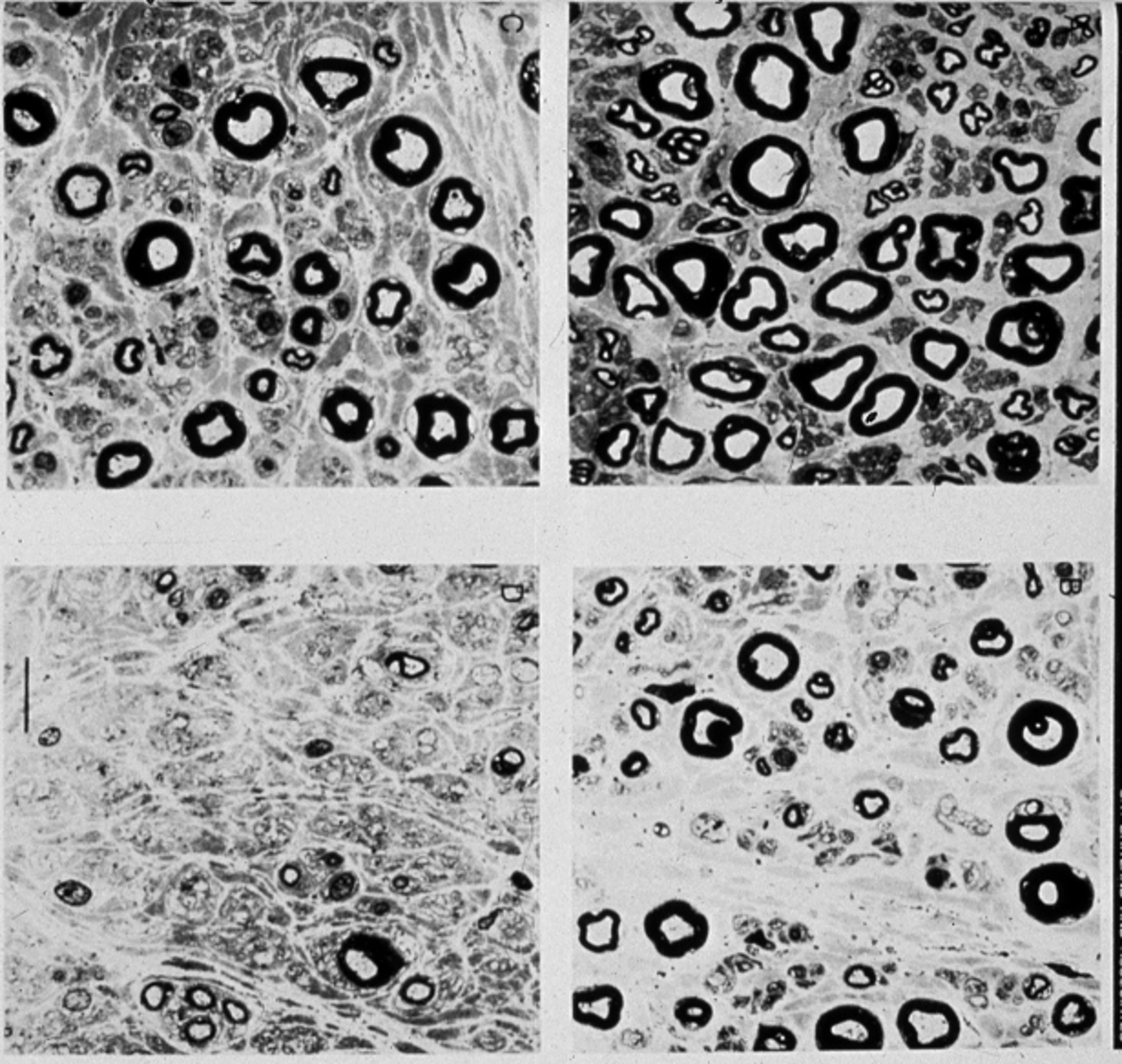About one in every 10 Americans have diabetes—90-95% of those type 2 (CDC). Up to one-half of people with diabetes have peripheral neuropathy (National Institute of Diabetes and Digestive and Kidney Disease, or NIDDK)). Peripheral neuropathy is nerve damage that typically affects the feet, legs, and sometimes the hands and arms. It's a debilitating condition that causes pain and a loss of sensation in the areas affected, This, in turn, can lead to loss of balance, inability to walk, and even amputations due to untreated ulcers. Currently, there is no effective treatment for neuropathy.

Frances and Kenneth Eisenberg Emerging Scholar Stephanie Eid, Ph.D., has dedicated her career to understanding and identifying therapy targets for peripheral neuropathy. The National Institutes of Health (NIH) recently presented her with the prestigious Mentored Research Scientist Career Development Award to support her research into the mechanisms underlying neuropathy in type 2 diabetes, primarily related to lipid metabolism.
Why this focus?
Type 2 diabetes (T2D) is a global public health concern, affecting over 537 million people worldwide, and up to one half of those experience diabetic neuropathy. Controlling blood sugar is currently the only treatment for peripheral neuropathy, but it doesn't restore nerve function in T2D. Furthermore, an imbalance of lipids (cholesterol, triglycerides, etc.) has been found to increase the risk of PN separate from diabetes, but how it leads to nerve damage is unclear. Dr. Eid wants to understand the mechanisms by which lipid imbalance promotes nerve injury to help develop targeted, mechanism-based therapies.
"Diabetic neuropathy is debilitating," explains Dr. Eid. "It is associated with so many painful symptoms, reduced quality of life, falls, amputations, you name it. We need to find a solution. Over the years, we have been looking for a one-size-fits-all fix, and that just doesn't work."
"For instance, we have learned that blood sugar control alone doesn't relieve diabetic neuropathy, and a treatment that works for kidney complications does not necessarily improve nerve function. We are looking specifically at what is going on at the tissue and cell level and hope that this work paves the way for cell-specific and mechanism-based therapies that can improve the quality of life for patients affected by diabetic neuropathy."

The research.
First, using a preclinical model that is induced with type 2 diabetes and obesity (the latter using a high-fat or McDonald's diet), Dr. Eid will examine the development of nerve dysfunction in each model. Both groups will then be given lifestyle interventions (diet, exercise, or both) to determine if they improve peripheral nerve function.
The second aim of her grant is to look further into the role of Schwann cells, the supporting cells of peripheral nerves. Dr. Eid has already discovered that Schwann cells' function is more than merely protective; it also plays a metabolic and energetic role in nerves via extracellular vesicles (EVs). Dr. Eid will examine whether EVs from Schwann cells are, in fact, what is metabolically supporting nerve axons and whether this metabolic support is absent in T2D, leading to nerve injury, thus providing an important therapy target.
The final aim of this grant is to look at a particular microRNA (15B), which, based on Dr. Eid's preliminary research, can be pathological and regulate lipid metabolism. This microRNA is also known to drive insulin resistance in other tissues. Dr. Eid believes that by inhibiting 15B, insulin resistance might be improved, in turn improving peripheral neuropathy and offering another possible new therapy target.
Eva Feldman, M.D., Ph.D.: “Dr. Eid’s new K01 NIH grant is the first step in what I know will be a productive and illustrious career, which will produce true breakthroughs in our understanding of how diabetes and obesity cause nerve damage, resulting in peripheral neuropathy. Dr. Eid is a promising pioneer in this field of research.”
